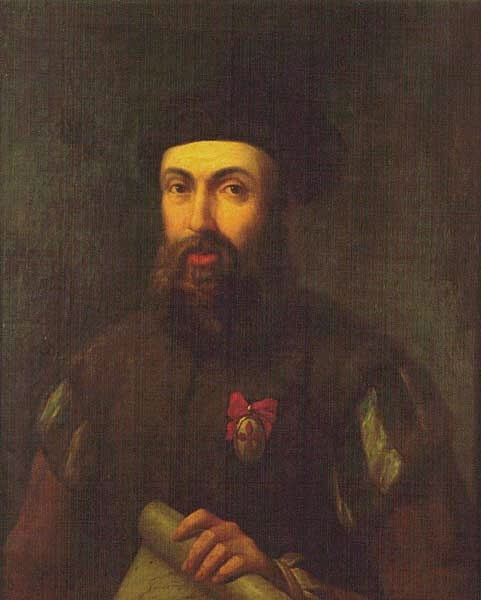Gender Masculine
Pronounced Pron. /ˈfɛʁ.di.nant/(German) /fɛʁ.di.nɑ̃/(French) /ˈfɛr.di.nɑnt/(Dutch) /ˈfɜɹ.də.nænd/(American English) /ˈfɜː.də.nænd/(British English) /ˈfɛr.di.nand/(Slovak) /ˈfɛr.dɪ.nant/(Czech) [key·simplify]
Meaning & History
From Fredenandus, the Latinized form of a Gothic name composed of the elements friþus "peace" (or perhaps farþa "journey" [1]) and nanþa "boldness, daring". The Visigoths brought the name to the Iberian Peninsula, where it entered into the royal families of Spain and Portugal. From there it became common among the Habsburg royal family of the Holy Roman Empire and Austria, starting with the Spanish-born Ferdinand I in the 16th century. A notable bearer was Portuguese explorer Ferdinand Magellan (1480-1521), called Fernão de Magalhães in Portuguese, who was the leader of the first expedition to sail around the earth.
Related Names
Other Languages & CulturesFerran(Catalan) Veeti, Vertti(Finnish) Fen(Frisian) Fredenandus, Friþunanþs(Gothic) Ferdinánd, Nándor(Hungarian) Ferdinando, Nando(Italian) Ferdynand(Polish) Fernando, Fernão, Nando(Portuguese) Fernando, Hernán, Hernando, Nando(Spanish)
Same SpellingFerdinánd
User SubmissionFerdínand
Popularity
People think this name is
Name Days
Images
 Depiction of Ferdinand Magellan (1787)
Depiction of Ferdinand Magellan (1787)Categories
Aphra Behn characters, Ascendance of a Bookworm characters, Berenstain Bears characters, brave, chess Grandmasters, courage, Croatian kings, currently out of the US top 1000, explorers, Ferdinand characters, Filipino presidents, Fire Emblem characters, German chancellors, Harlem Renaissance, Leo Tolstoy characters, moons, moons of Uranus, Ni no Kuni characters, politics, royalty, Shakespearean characters, Thomas and Friends characters, Tolkien characters, travel, tyrants, virtues
Sources & References
- Förstemann, Ernst. Altdeutsches Namenbuch. Bonn, 1900, page 499.

